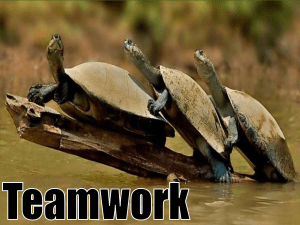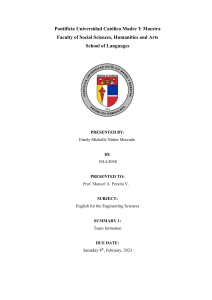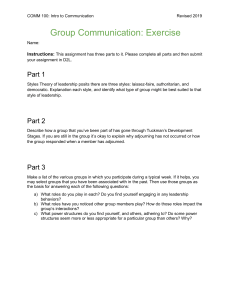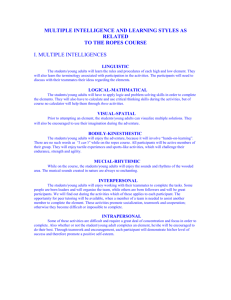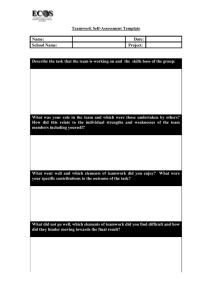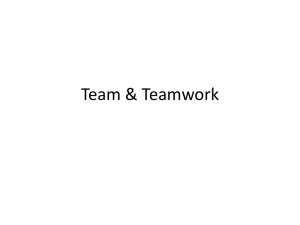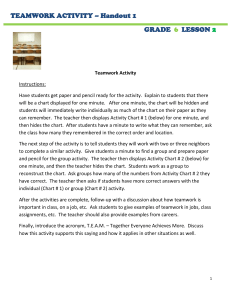Management 8e. - Robbins and Coulter
advertisement
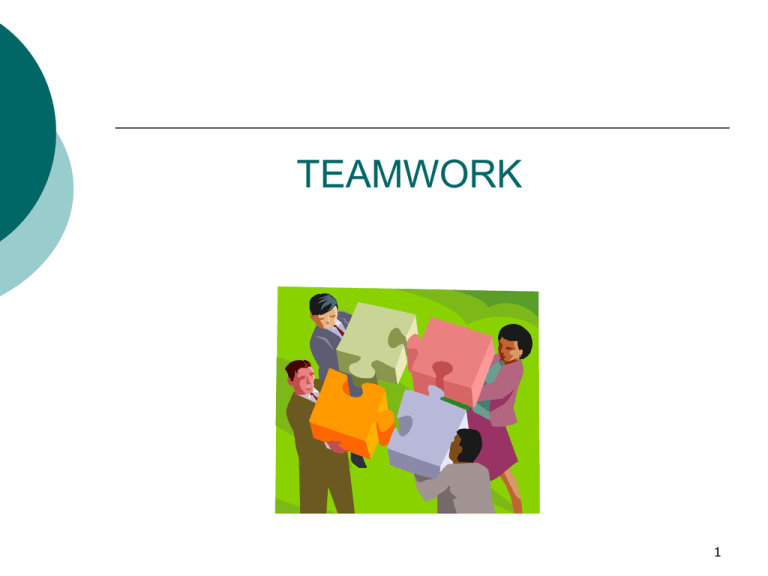
TEAMWORK 1 Learning Styles Concrete Experience Active Experimentation Reflective Observation Abstract Conceptualisation 2 Exercise Get into your project team Share your learning styles Discuss how best to work together 3 Understanding Groups Two or more interacting and interdependent individuals who come together to achieve particular goals. Formal groups Work groups defined by the organization’s structure that have designated work assignments and tasks. Appropriate behaviors are defined by and directed toward organizational goals. Informal groups Groups that are independently formed to meet the social needs of their members. 4 Stages in Group Development Forming Performing Storming Members join and begin the process of defining the group’s purpose, structure, and leadership. Intragroup conflict occurs as individuals resist control by the group and disagree over leadership. Norming Close relationships develop as the group becomes cohesive and establishes its norms for acceptable behavior. A fully functional group structure allows the group to focus on performing the task at hand. Adjourning The group prepares to disband and is no longer concerned with high levels of performance. 5 Stages of Group Development 6 Advantages of Using Teams Teams outperform individuals. Teams provide a way to better use employee talents. Teams are more flexible and responsive. Teams can be quickly assembled, deployed, refocused, and disbanded. 7 Characteristics of Effective Teams 8 Characteristics of Effective Teams Have a clear understanding of their goals. Have competent members with relevant technical and interpersonal skills. Exhibit high mutual trust in the character and integrity of their members. Are unified in their commitment to team goals. Have good communication systems. Possess effective negotiating skills Have appropriate leadership Have both internally and externally supportive environments 9 How to Work In Team Set goals Agree on rules Communicate: Share, listen, integrate, … Respect each other Perform: Do your part/ help others/ ask for support Develop trust 10 SUMMARY AND CONCLUSION Work is becoming more complex, which requires a group or team effort Teams are groups where members with complementary skills hold themselves mutually accountable for team performance Building effective groups and teams requires knowledge of task/technology, people, formal organization arrangements and group culture 11 Case: How to save this team Does this task need teamwork? Why didn't the team work? What need to be done in order to make the team work? 12 COMMON COMPLAINTS ABOUT THE TEAM PROJECT I am more productive when I work alone. I don’t even like working in a team. I can’t change my schedule to attend team meetings. I do not know what’s going on in my team. I feel like I’m left out of the team. Some of the members did not participate. I am kind of surprised. The report we turned in is different than I expected. We relied on Joe for company info. He did not get it. We’re screwed. 13 Team Exercise Get to your Project Team Work on the Mountain Survivor exercise (handout in class) Individual: 7 minutes Team: 15 minutes 14
